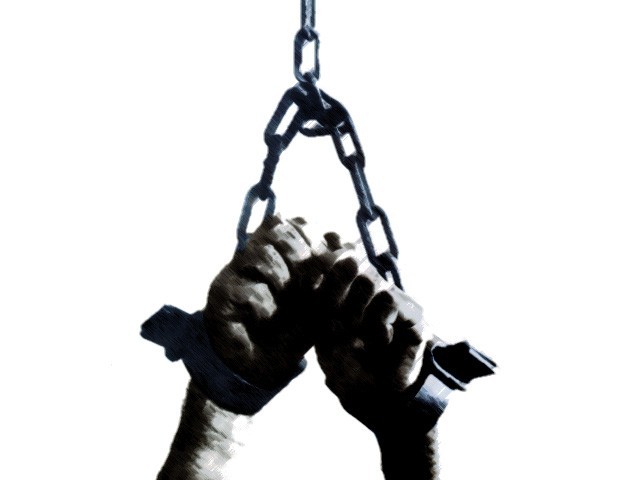By Agencies
CAIRO: The Muslim Brotherhood, Egypt’s most powerful political group, says it is considering running its own candidate in upcoming presidential elections, dropping its previous decision to avoid direct participation in the race.
The group appears to be playing one of its last cards in a power struggle against the ruling military council, after it failed to force the military to replace its Cabinet with a new one appointed by the Islamist-dominated parliament.
If a Brotherhood fields a candidate and wins the presidency, the group would control the two main branches of power. In parliamentary elections, the first since a popular uprising unseated president Hosni Mubarak last year, it won nearly half the seats.
Since then, the Brotherhood has sought to allay fears of local liberals as well as Egypt’s Western allies about an Islamist takeover by saying it would not field its own candidate for president. Elections are set for May 23-24.
That appears to have changed. Mahmoud Hussein, the Brotherhood’s general secretary, told The Associated Press on Wednesday that his group has been “forced to consider the option of fielding a candidate from its own ranks.”
Besides rejecting its demand for a new Cabinet, Hussein charged that the generals are working behind the scenes to persuade presidential candidates to turn down Brotherhood support.
“When we reach out to some people, they either refuse because they feel they are not up to the mission or they come under pressure from the military council,” he said. He declined to give names.
Another factor is that younger Brotherhood members are disobeying the group’s leadership by supporting a former Brotherhood leader, Abdel Moneim Abol Fotoh, who was expelled from the movement after he announced his decision to join the race.
Abol Fotoh, a strong presidential hopeful, also has the backing of some liberals, who see him as a reformer.
For the Muslim Brotherhood to field a candidate after expelling Abol Fotoh for defying its ban on running would be seen as double standards, said Essam Sultan, a lawmaker from the Al-Wasat, or Centrist, party, whose founders had left the Brotherhood in the 1990s.
“The Brotherhood is in real crisis over the tremendous support Abol Fotoh has among its youth, but it will be in a double crisis if tries to solve this by fielding” another candidate, Sultan said.
Medhat Hadad, a member of the group’s Shoura Council which decides on policy, said the Brotherhood would not back Abol Fotoh as a matter of principle after he defied the group’s earlier position not to run.
The Brotherhood might choose to back one of its own as a presidential candidate for Egypt given the lack of choices,” Hadad told Reuters.
“Of those who applied already, the Brotherhood has not found a presidential candidate it is willing to support,” he said.
Of the nearly 1,000 candidates who have so far requested applications only three have formally submitted documents to run. Political parties in parliament can field one candidate, while independents need the backing of at least 30 members of parliament or the support of 30,000 Egyptians across the nation.
Another source inside the Brotherhood said the Islamist group’s Shoura council and its governing body would vote on Friday to determine whether to change tack and field their own candidate.
Mahmoud Hussein, the Brotherhood’s secretary-general, confirmed a possible change of tack, saying: “It is possible the Muslim Brotherhood will put forth a candidate if it has to.”
The name of the Brotherhood’s deputy chairman, Khairat El-Shater, has been mentioned in local media as the group’s likely candidate.
Before any bid, El-Shater, an accomplished businessman, would have to request that a military tribunal annul his conviction in 2007 for allegedly supplying university students with military training. He was sentenced to seven years in jail, and was freed with many other Brotherhood members in 2011 after serving four-and-a-half years.
The conviction has reportedly been annulled, according to media reports. But one insider said his nomination was still unlikely.
Critics warn the Brotherhood against taking too much on itself just a year after it emerged from decades of operating in the shadows as an illegal organization.
“It would be a fatal mistake, because they would be faced with huge challenges,” said Mohamed Habib, a former deputy leader of the group who quit last year, citing the group’s undemocratic policies.
For most of his 30 years in office, Mubarak was elected by single candidate referendums. But in 2005, after pressure from the United States, a close ally, Egypt held its first multi-candidate presidential race.
Independent observers said that vote was littered with abuses and rules were skewed to ensure there was no real challenge to the incumbent.
The ruling military council has presidential powers to dismiss Cabinets and form new ones. Under Egypt’s interim constitution, the parliament doesn’t have the power to take a no-confidence vote in the military’s hand-picked government.
In heated parliament sessions, the Brotherhood along with other political parties have harshly criticized Prime Minister Kamal El-Ganzoury, a 78-year-old Mubarak-era premier, for failing politically, economically and even over internal security.
El-Ganzoury, appointed in November by the military council, has taken criticism for ineffective handling of explosive issues such as a political spat between Egypt and the United States over US-funded democracy groups, a deadly soccer stadium riot that killed at least 74 people, a surge of armed robberies and other crimes and periodic shortages of fuel and cooking gas.
Sultan said that the government is “fabricating” crises such as fuel shortages in an attempt to reduce the Brotherhood’s support among the people.
“The military council, through its government, is telling the people, ‘look, your representatives are not able to solve your problems,'” Sultan said.
